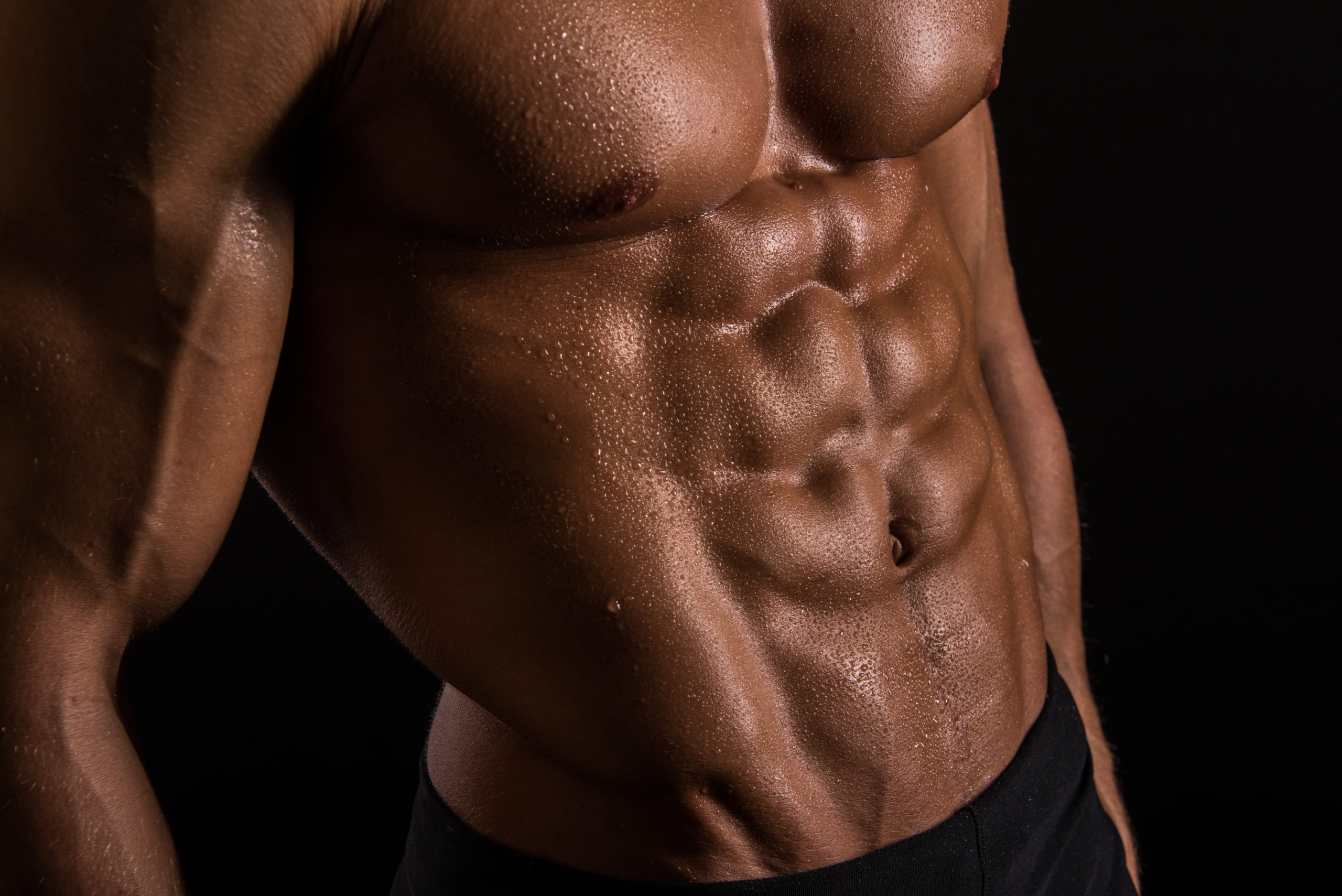
Shredded abs are sought after like a luxury item. People think they are sexy, there is no going around that. Whether it is a man or a woman walking around with rock-hard abs at the beach or in the gym, eyes are on them. But very few people have visibly ripped abs. How often should you workout abs? Do genetics play a role? Can you spot reduce fat? These are all questions we are answering when telling you the truth about abs.
Many people try all these different hacks and methods to get their abs lean for the summer. Some even go beneath the knife. The reality is, having visible abs is all about having a low body fat percentage. Everyone has them, but not everyone is lean enough to see them.
Initially, we will look at the anatomy of the abdominal muscles to gain an understanding of how to train them. Then, make it clear what you best can do to get your abs lean.
Structure of The Abdominal Wall
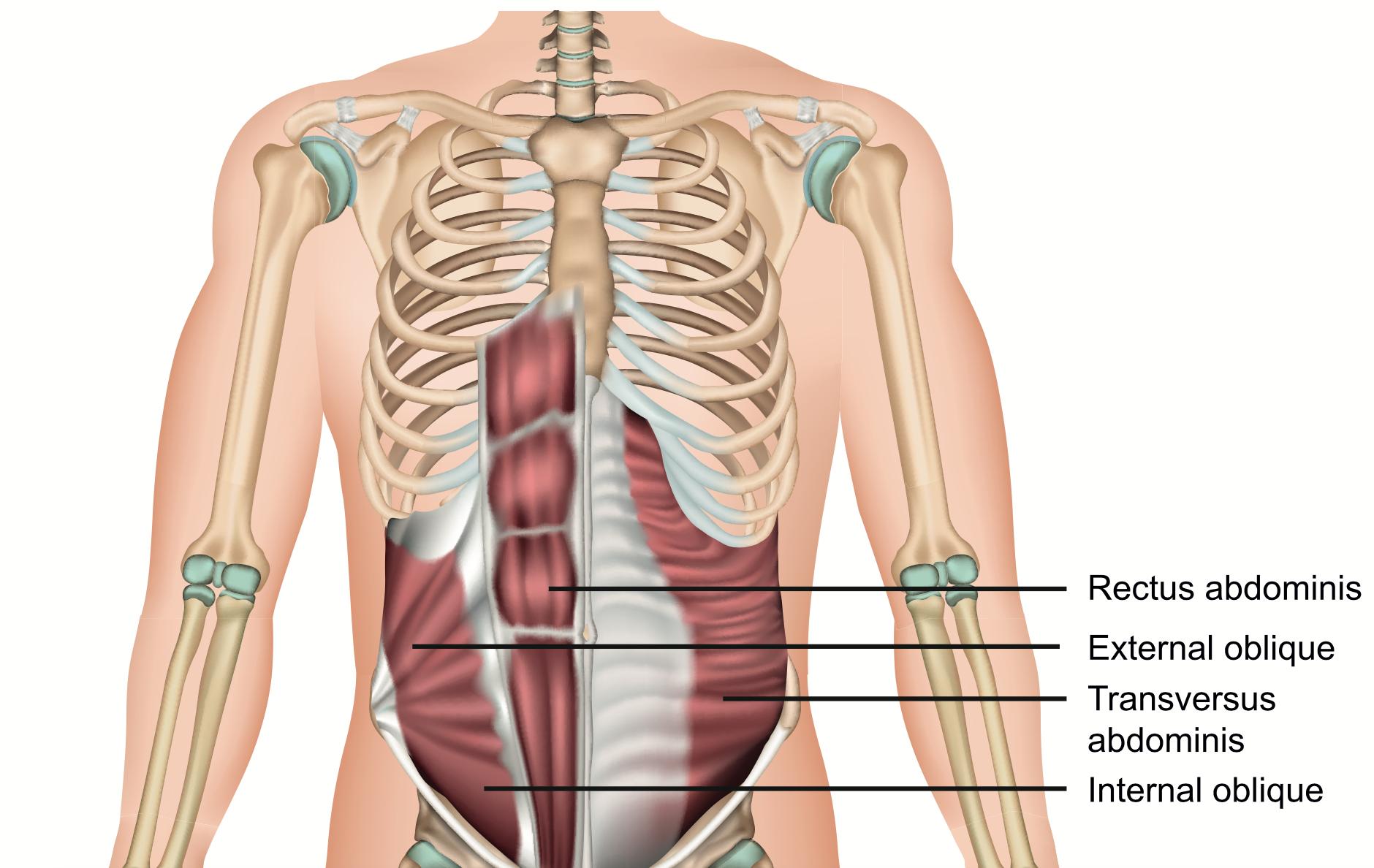
The abdomen muscles are used in almost everything we do. Their main tasks are stabilization of your spine and pelvis. Whether you are walking, running or doing a military press, the abdominals are in use and ensure stability.
Strong abdominal muscles will help you maintain a great posture and with a better performance of almost any other exercise.
The abdominal wall is a part of your trunk that connects the thorax and pelvis. These connective tissues have very little bones around them, which allows for a high flexibility of the trunk. Movements include flexion, extension and rotation.
Abdominal Muscles
The muscles that make up the abdominal wall consists of the internal and external obliques, transversus abdominis, and rectus abdominis (Flynn; Vickerton, 2021).
Internal Obliques
The Internal Obliques are located on lateral sides of the abdomen. Together with the external obliques and transversus abdominis it forms the abdominal wall. The external obliques are on the outer side, while the transversus abdominis are on the inner side. The origin of its name refers to their oblique orientation.
These muscles help with flexing and bending, and rotating our trunk, and even childbirth in women.
External Obliques
The external obliques are the largest and most outer muscles of the abdominal wall. They stretch from the bottom part of the ribs to the pelvis. In contrast to the internal obliques, the external obliques are opposite side rotation muscles. Whereas the internal obliques are the same side rotation muscles.
Having strong obliques not only helps you have a good posture, but also prevents injuries and pains. Injuries often occur in the lower back and shoulder area when the core muscles are weak.
Transversus Abdominis
Transversus abdominis sits the deepest compared to the other muscles of the abdominal wall. It stretches horizontally between the ribs and pelvis, pretty much like a corset. Its main role is to protect the internal organs by keeping them in place, and supporting the torso. It supports the torso through maintenance of tension in the abdominal wall. Thereby, stabilizing the pelvis and spine before any movement of the limbs occurs.
Meaning, it’s an incredibly important muscle for stabilization of the core and lower back.
Rectus Abdominis
Rectus abdominis is what we often refer to as the abs. It is the long and narrow muscle of the anterior abdominal wall. This muscle is between the ribs and pubic bone. When we have a low-body fat percentage, this is the muscle referred to as a “six-pack.”
The main function of the rectus abdominis is movement of the body between the ribs and pelvis.
How Do I Train Abs?
Now that we have taken a look at the muscles that make up our abdominal wall, we can focus on how to train them. The video above can be found here.
An efficient way to make sure you are targeting your whole abdominal wall is to split your ab workout into internal and external obliques, rectus abdominis, and transversus abdominis.
From the magazines back in the day to social media today, there are beautiful people with ripped abs everywhere. And half of the people watching are lusting for them. This has created such a strong desire for a six-pack, and the supply has followed. Our industry is packed with all kinds of crazy and acrobatic exercises and funky diets to make those abs pop.
But we are here to tell you the truth about abs. You do not need to do anything crazy to have visible abs.
However, you need consistency, lean muscle, and a low body-fat percentage. Which requires patience. But you can have them, like everyone else!
Common Misconceptions About Training Abs
The biggest misconception we see when people train abs is that they move their hips. The abdominals compress to stabilize the spine, and also a tiny bit of flexion. But, they are not hip flexors. Where most people flex their hips when they are intending to train abs.
There is nothing wrong with training your hip flexors, but you need to know what you are doing.
For instance, in a decline crunch, we often see people do a little crunch, and then a hip flexion movement all the way to the top. The range of motion for the abs is shorter than that.
When performing a crunch, first of all, focus on having a flat lower back. Then bring the abs towards the spine and the sternum towards the top of the pelvis.
Training Rectus Abdominis

As mentioned above, our focus when training rectus abdominis is to bring the abs towards the spine, and the sternum towards the top of the pelvis. Basically, the lower part of the ribs is towards the pelvis.
For most people seeking six-pack abs, this will be the predominantly trained muscle. There is nothing wrong with training obliques, but most of us do not want big obliques.
Rectus Abdominis Exercises:
Ball Crunches, Hanging Leg Raises, Seated Cable Crunches, and Band Chops.
Training Transversus Abdominis
When the transversus abdominis (TVA) is contracted, it tightens the abs similar to how you would tighten a belt. Exercising the TVA can help keep the waist slim.
It is extremely important to focus on contracting the muscle and not just repping it all out. To properly target this muscle, precision is required.
A great exercise to begin training the TVA is TVA Crunches with an exercise ball. There are two movements. The first is to contract your obliques. Feel it as if you are contracting towards your belly button and in, towards your spine. Secondly, pull the bottom of your sternum towards your pelvis. This last movement is very minor. Contracting for 2-3 seconds at the top can be helpful.
It can take some practice to get it right, so do not give up at first!
The higher the peak of the ball is on your back, the easier the movement will be. When it is lower, you are using more of your body weight.
Transversus Abdominis Exercises:
Planks, crunches, bicycle crunches, and dead bugs.
Training Obliques
Training obliques is pretty straightforward. Our main focus here is to move the torso.
We can bend, flex and rotate it. These are the main movements of our obliques.
To train the external obliques, we want to crunch our torso inwards. For the internal obliques, we want to crunch outwards.
Oblique Exercises:
Internal and External Oblique Band Chops, Internal, and External Oblique Cable Crunches, and Hanging Internal Oblique Crunches.
How Often Should I Workout My Abs?
How often you train your abs is completely up to you and your goals. Abs, like calves, are muscles we use a lot. Therefore, they can definitely take a load, and be trained pretty often. It does not mean you should overwork them and train them every day, but three to four times a week is not usually an issue.
However, abs are muscles just like the rest of our muscles. By training them more frequently, assuming enough rest, they will also grow more and become stronger.
If you want stronger and bigger abs, definitely go ahead and increase the frequency.
Remember, seeing your abs is about having a low enough body fat percentage to see them. You need to get lean. Of course, training and getting them stronger and bigger will make them more visible, but not if you are not lean enough!
How Long Should I Workout My Abs?

The length of your ab workout depends on how you split it up and how advanced you are. But usually, we want to train abs with lower rest periods and higher intensity. Additionally, holding contractions for 2-5 seconds is helpful.
Therefore, a 30-minute ab workout is usually overkilling in most scenarios. 10-15 minutes should be plenty of time to set those abs on fire.
Can You Target Belly Fat?

No, you cannot spot-reduce fat. That is a complete myth and lie. Do not listen to anyone who says they can teach you how to specifically lose more fat in the belly.
They are simply trying to sell you something, we are here to tell you the truth about abs.
How your body uses energy is entirely genetically dependent. Some people store most of their fat in their belly, others in their butt, and some in their upper body.
All you can do is lose body fat and become lean. How much body fat you need to lose to see your abs is also genetically dependent. For example, some men have very visible abs at 10% body fat, others need to get down to 7-8%.
Are Abs Genetic?
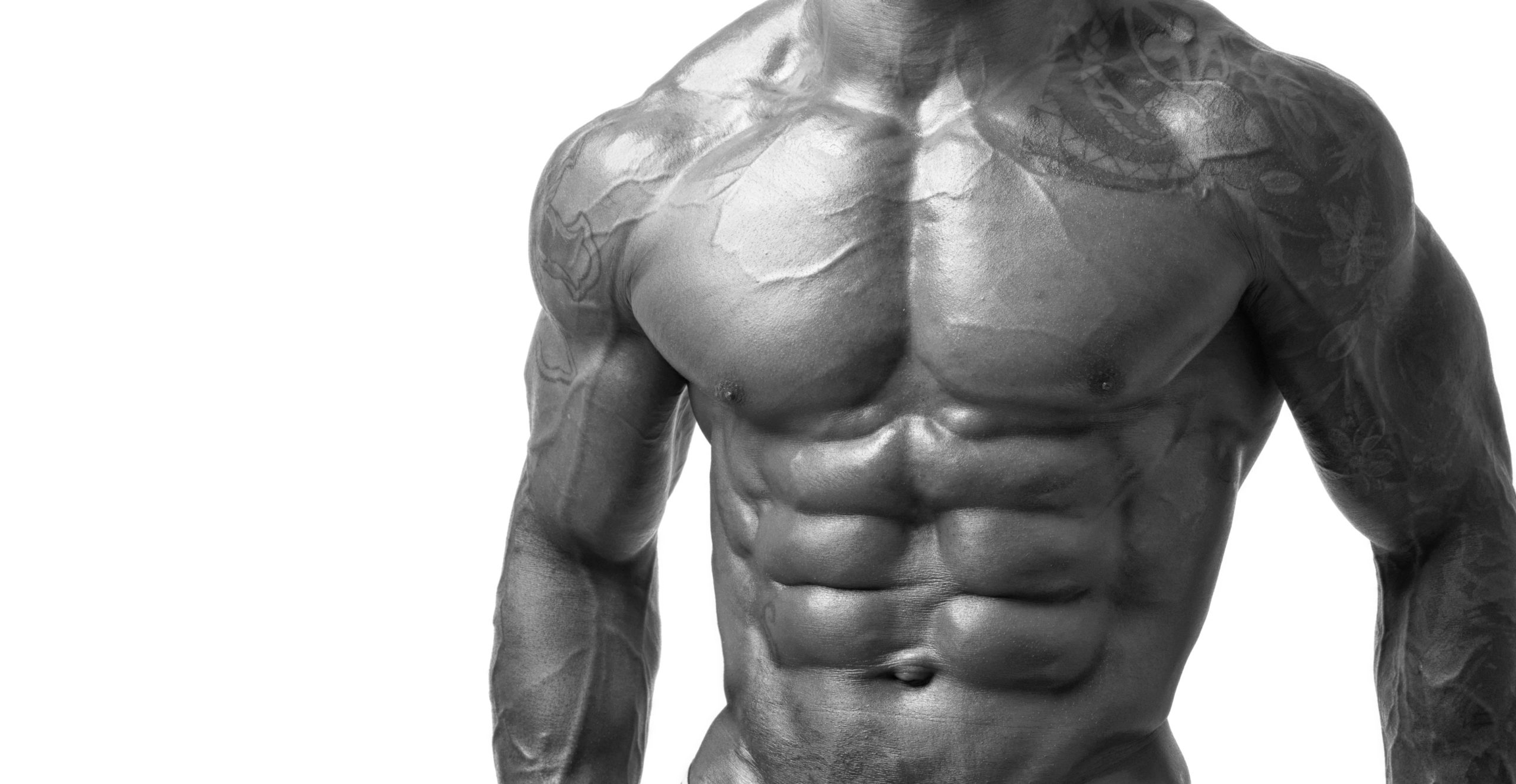
Yes, the visibility of your abs is very dependent on your genetics. You can make them bigger and stronger, but their shape and form of them cannot be changed without surgery. Not only is the shape dependent on genetics, but body fat as well.
Some people sit on their butt the whole day, eat candy, and still have incredible abs. Others who work out a lot and have a strict diet, barely have a visible 4-pack.
We are here to tell you the truth, and this is the truth. Some people simply do not need to do much to have an incredible ten-pack, others need to bust their asses to see them. Moreover, some people might not even have a six-pack shape even when they are lean.
So yes, genetics are incredibly important for a beautiful six-pack. This is the truth about abs. But, it does not mean you cannot train your abs to look incredible!
Ab Workout Example
Below we have provided you with some killer ab workouts which will make your abs burn. Remember to focus on your breath and slow movements. Breathe out in the eccentric part of the movement, and breathe out as you are contracting. Squeeze as hard as you can in the shortened position.
If you are not focused on execution, these workouts will be easy. But, if you truly focus on the movement, your abs will be screaming!
Workout 1:
A1) Cable Crunches 3 x 10, (3-1-1-3), 0s rest
A2) Garhammers 3 x 10, (3-0-1-3), 0s rest
A3) Internal Oblique Cable Crunch 3 x 10 (3-1-1-3), 45s rest
Workout 2:
A1) TVA Ball Crunch 3 x 10, (3-1-1-3), 0s rest
A2) Ball Crunches 3 x 10, (3-1-1-3), 45s rest
B1) External Oblique Cable Chops, 3 x 10, (3-1-1-2), 0s rest
B2) Internal Oblique Cable Chops, 3 x 10, (3-1-1-2), 45s rest
Conclusion
We have taken a deep dive into the abdominal muscles. Now we know the muscles that make up the abs and how to train them individually. A strong-looking six-pack is not only dependent on a low body fat percentage and hard training, but also on your genetics. Everyone can have a lean and strong core, but whether you have a washboard with a 10-pack, truthfully, is up to your genetics. Regardless, a strong and muscular ab section is healthy and beautiful. With the knowledge and truth about abs, you can now go and smash your core!
Thank you for reading our article!
– Terry Asher
Terry Asher
Latest posts by Terry Asher (see all)
- Better Family – Product Review Liquid Daily 2 oz - Dec 16, 2024
- Post-Workout Recovery: The Key to Optimal Performance - Nov 25, 2024
- Pre-Workout Supplements – Everything You Need To Know - Nov 18, 2024

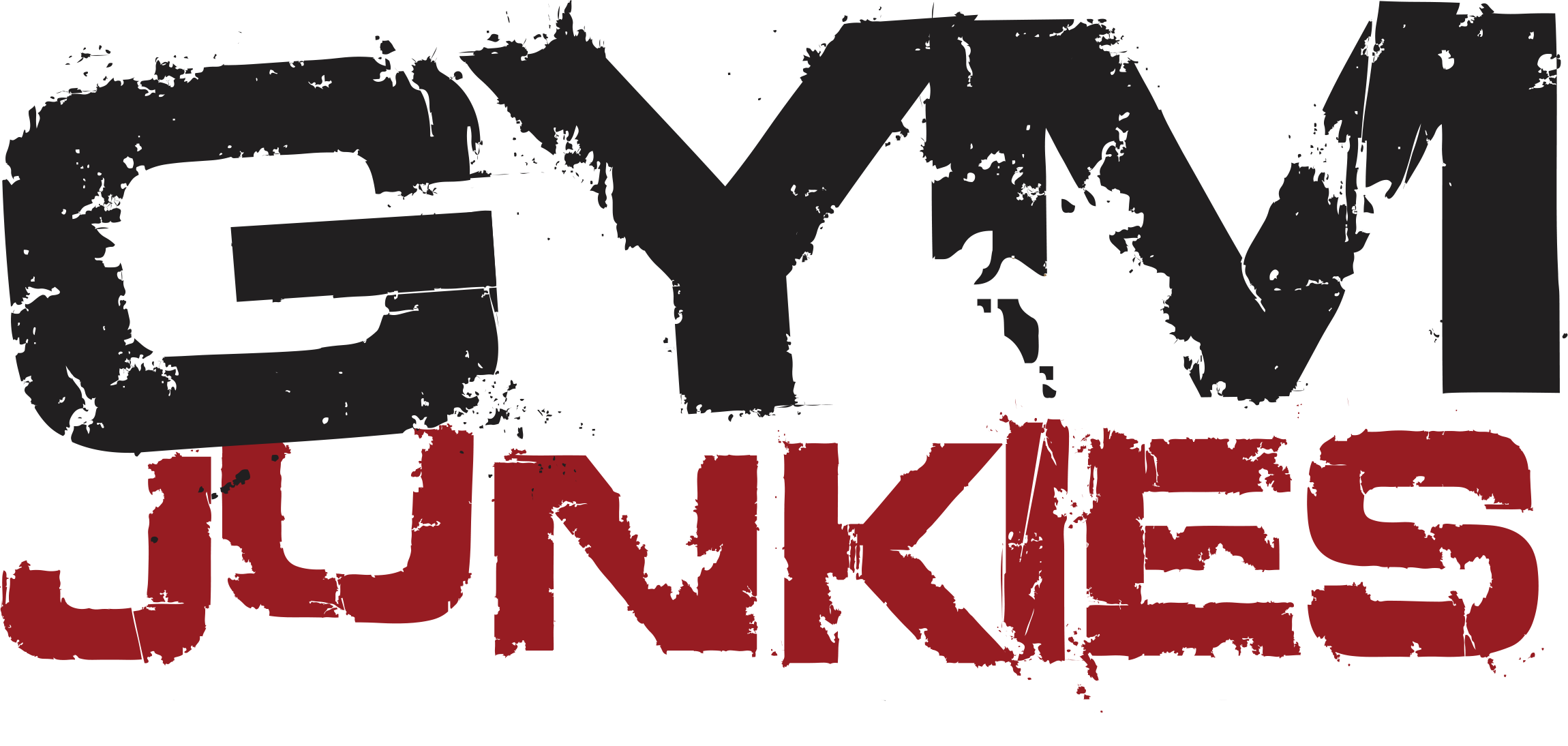




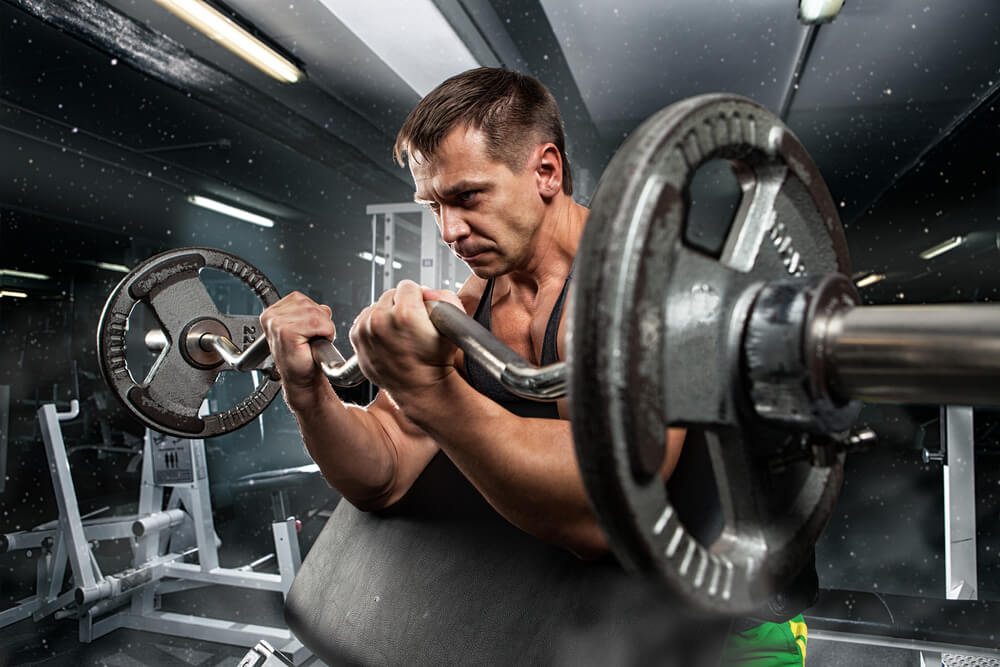




[…] Often, people will look to someone they find on social media and want to be like them. So they go and look at what they do, what they eat, and expect to look somewhat similar. Not being aware of the truth. […]
[…] Often, people will look to someone they find on social media and want to be like them. So they go and look at what they do, what they eat, and expect to look somewhat similar. Not being aware of the truth. […]
[…] Often, people will look to someone they find on social media and want to be like them. So they go and look at what they do, what they eat, and expect to look somewhat similar. Not being aware of the truth. […]